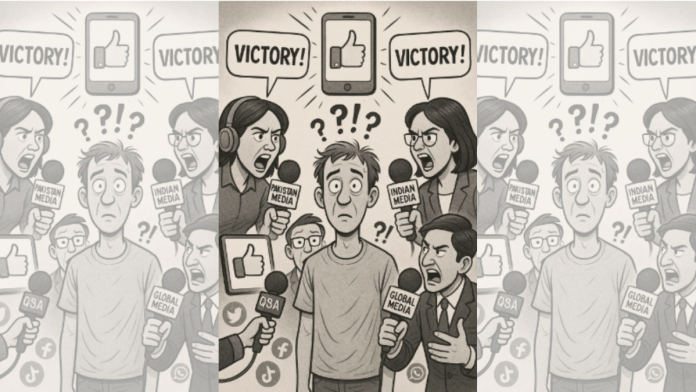Thank you dear subscribers, we are overwhelmed with your response.
Your Turn is a unique section from ThePrint featuring points of view from its subscribers. If you are a subscriber, have a point of view, please send it to us. If not, do subscribe here: https://theprint.in/
As a curious citizen, I turned to the news hoping to understand what was really happening in the ongoing conflict. Instead, I found myself wading through a stream of dramatic declarations, high-decibel panels, and premature proclamations of victory — all offered with remarkable confidence and very little substantiation.
Disturbed by the lack of clarity, I did what anyone with an internet connection could do: I looked deeper. It didn’t take long to realise that many of the claims making prime-time headlines were speculative, unverified, or simply lifted from social media. If I, without newsroom access or resources, could sift through fact and fiction — why can’t those whose only job is to inform?
That’s the question that refuses to leave me.
Journalism was once defined by its commitment to facts, its ability to sift signal from noise. But many Indian newsrooms today seem more focused on echoing what’s viral than investigating what’s true. In the relentless pursuit of TRPs, the newsroom has become a stage — truth optional, drama guaranteed.
This isn’t just a media problem. It’s a national one. In an era where perception shapes power, information is not just reportage — it’s a strategic tool. Misreporting, or worse, amplifying misinformation, does real damage. It weakens India’s credibility, both domestically and on the global stage. We’re not just losing attention spans — we’re losing the narrative war.
Yet, there is hope. Independent platforms like The Print continue to prioritise fact over frenzy. Many journalists still do the hard, thankless work of verifying before broadcasting. And many citizens, like me, are asking better questions, expecting more.
India doesn’t need louder voices. It needs clearer ones. And it starts with reclaiming truth as the bedrock of public discourse.
These pieces are being published as they have been received – they have not been edited/fact-checked by ThePrint.


